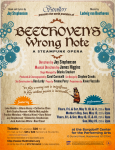SCOTUS Baker Case: MASTERPIECE CAKESHOP, LTD., ET AL. v. COLORADO CIVIL RIGHTS COMMISSION ET AL
As others have intimated, it is my understanding that the Supreme Court's decision was rendered strictly on a narrow procedural matter and did not constitute a verdict or establish dictum on the larger issues such as the constitutionality of the Colorado Anti-Discrimination law or whether someone might seek an exception from that law based on religious values. I believe the foundation of the decision to be that because some members of the Colorado Civil Rights Commission who reviewed the matter made comments during the process in which they essentially voiced their objection to religion being used to justify discrimination as well as offering other negative statements on religion, it supported the appellant's claim that the Commission had failed to balance religion (one protected status) and sexual orientation/identity (another protected status) in their deliberation as is required by the law. The Supreme Court concluded that one status does not necessarily "trump" (pun not intended) another so the Commission had not only erred in terms of demonstrating imbalance/bias but also had not strictly applied the law. Although the justices did consider whether the baker was an "artist" or strictly rendering a service, I thought that was somewhat more a side issue in the decision. Claims being made by some that because the court "did not do this/that" it was a victory for one side or the other seem specious to me.
weirdbeard said:
maps said:Not so clear-cut, since two of the more liberal justices concurred with some of the reasoning but disagreed with other parts, and Thomas and Alito likewise concurred and disagreed with other parts, so there was no overwealming agreement on any one part of the decision. It will be interesting to see how the lower courts wrestle with trying to apply this case to future decisions in similar circumstances. I think it will be a bit of a mess.
DaveSchmidt said:With a 7 - 2 ruling it seems like they made a pretty solid argument.
it seems a difficult argument to make.
You are right, it was not actually not what I was trying to say, and in trying to say what I wanted to say I did a crappy job doing it. =) classic discussion thread mess up. Just ignore that since it is not what I wanted to say. I was only trying to say that the bakers use of his rights as an artist, to not make the cake, was central to his argument.
Norman_Bates said:
Claims being made by some that because the court "did not do this/that" it was a victory for one side or the other seem specious to me.
This exactly!
Somewhere on he internet (I don't remember where), a commentator was saying that the Masterpiece Cakeopinion concluded that Phillips acted reasonably. Because his actions took place BEFORE Obergefell was decided (and also before CO's law against discrimination included gays in its protection). Thus, if the commentator is right, it can be argued that Masterpiece Cake is only applicable to similar instances where the incident occurred before Obergefell at a minimum. I have not had a chance to read the entire opinion. But when I do that will be one point that I am looking for.
Just thinking out loud here, but:
Let's say we've got one guy who claims protection under our Constitution, from being coerced, under color of State law, to engage in conduct (let's call it designing and crafting a unique item) he sincerely believes to be antithetical to his religious beliefs; not to mention, in violation of his right to free speech (or, to not speak).
On the other hand, we have a guy who, under color of State law, demands that the first guy do that which the second guy wants, because, hey, State law says the second guy is entitled to have that demand met.
So, first guy is now faced with the dilemma of not providing his services to anybody (thus avoiding sanctions under State law); or, acceding to the second guy's, (and the State's) insistence that first guy's Constitutional rights don't count for a whole lot. (I wonder what the Rev. King would think about that Hobson's choice).
Constitutional Rights as opposed to statutory rights?
I wonder what the Courts will do when such a matter arrives before them.
The above hypothetical is fictitious, and any similarity to real persons, or events, is purely coincidental. Thump-Thump.
TomR
RealityForAll said:
Somewhere on he internet (I don't remember where), a commentator was saying that the Masterpiece Cakeopinion concluded that Phillips acted reasonably. Because his actions took place BEFORE Obergefell was decided (and also before CO's law against discrimination included gays in its protection). Thus, if the commentator is right, it can be argued that Masterpiece Cake is only applicable to similar instances where the incident occurred before Obergefell at a minimum. I have not had a chance to read the entire opinion. But when I do that will be one point that I am looking for.
If the commentator referenced, indeed said/wrote that to which you allude, I can't help but wonder what they think of the proscription on ex post facto laws.
TomR
First Guy is free to design and craft a unique item. Second Guy is in no position to make demands of him. Simple.
But then you added the implication that First Guy was designing and crafting his item as a means of providing services. Is a right to provide services protected by the Constitution?
DaveSchmidt said:
First Guy is free to design and craft a unique item. Second Guy is in no position to make demands of him. Simple.
But then you added the implication that First Guy’s was designing and crafting his item as a means of providing services. Is a right to provide services protected by the Constitution?
I dunno. But, if there is a right to provide services, shouldn't an individual be permitted to not exercise that right.
TomR
Tom_R said:I dunno. But, if there is a right to provide services, shouldn't an individual be permitted to not exercise that right.
TomR
I’m content to let that question hang in the air until the “if” is settled.
DaveSchmidt said:
Tom_R said:I’m content to let that question hang in the air until the “if” is settled.
I dunno. But, if there is a right to provide services, shouldn't an individual be permitted to not exercise that right.
TomR
Isn't that the great thing about American jurisprudence.
We wait for a decision from the nine wizened ones, until a subsequent decision tells us which way is up.
Still waiting here in Maplewood.
TomR
Me, I wasn’t really waiting. Certainly not for all nine to grow wizened.
DaveSchmidt said:
Me, I wasn’t really waiting. Certainly not for all nine to grow wizened.
Which of the nine do you believe not be worthy of the appellation Wizzened Ones?
TomR
Ginsburg is the closest. Gorsuch, Kagan, Sotomayor and Roberts all have a ways to go.
Cases are often decided on the narrowest of grounds. This is,in part, because they have to get to a majority. Judges "joining in the result" con issue concurring opinions agreeing with the result but for different reasons.
Tom_R said:
Just thinking out loud here, but:
Let's say we've got one guy who claims protection under our Constitution, from being coerced, under color of State law, to engage in conduct (let's call it designing and crafting a unique item) he sincerely believes to be antithetical to his religious beliefs; not to mention, in violation of his right to free speech (or, to not speak).
On the other hand, we have a guy who, under color of State law, demands that the first guy do that which the second guy wants, because, hey, State law says the second guy is entitled to have that demand met.
So, first guy is now faced with the dilemma of not providing his services to anybody (thus avoiding sanctions under State law); or, acceding to the second guy's, (and the State's) insistence that first guy's Constitutional rights don't count for a whole lot. (I wonder what the Rev. King would think about that Hobson's choice).
Constitutional Rights as opposed to statutory rights?
I wonder what the Courts will do when such a matter arrives before them.
The above hypothetical is fictitious, and any similarity to real persons, or events, is purely coincidental. Thump-Thump.
TomR
I do not know exactly what the SC would decide in your scenario, but the artisan could tell the potential customer,
"I'll do this but only because I legally have to. I don't want to do it and I think your request is connected to immorality. Now, do you still want me to do this or wouldn't you rather take your money elsewhere?"
Jack Phillips responded to Colorado's insistence that he create cakes for same-sex weddings by getting out of wedding cake making altogether, but while Colorado can try to force Jack Phillips to do something he doesn't want to do, it cannot force him to pretend to be happy about it.
Tom_R said:
Just thinking out loud here, but:
Let's say we've got one guy who claims protection under our Constitution, from being coerced, under color of State law, to engage in conduct (let's call it designing and crafting a unique item) he sincerely believes to be antithetical to his religious beliefs; not to mention, in violation of his right to free speech (or, to not speak).
On the other hand, we have a guy who, under color of State law, demands that the first guy do that which the second guy wants, because, hey, State law says the second guy is entitled to have that demand met.
So, first guy is now faced with the dilemma of not providing his services to anybody (thus avoiding sanctions under State law); or, acceding to the second guy's, (and the State's) insistence that first guy's Constitutional rights don't count for a whole lot. (I wonder what the Rev. King would think about that Hobson's choice).
Constitutional Rights as opposed to statutory rights?
I wonder what the Courts will do when such a matter arrives before them.
The above hypothetical is fictitious, and any similarity to real persons, or events, is purely coincidental. Thump-Thump.
TomR
The Constitution trumps any statute, but that is not the issue. The issue is the extent of the Constitutional Right and any limitation. The Constitutional Right of Free Speech does not mean I can yell "Fire" in a crowded theater. The Constitutional Right to Freedom of Religion does not mean I can engage in human sacrifice even if my religion requires it.
Does Freedom of Religion allow me in my business dealings to discriminate against certain categories of customers? One could ask what does Religion have to do with Business?
LOST said:
Tom_R said:The Constitution trumps any statute, but that is not the issue. The issue is the extent of the Constitutional Right and any limitation. The Constitutional Right of Free Speech does not mean I can yell "Fire" in a crowded theater. The Constitutional Right to Freedom of Religion does not mean I can engage in human sacrifice even if my religion requires it.
Just thinking out loud here, but:
Let's say we've got one guy who claims protection under our Constitution, from being coerced, under color of State law, to engage in conduct (let's call it designing and crafting a unique item) he sincerely believes to be antithetical to his religious beliefs; not to mention, in violation of his right to free speech (or, to not speak).
On the other hand, we have a guy who, under color of State law, demands that the first guy do that which the second guy wants, because, hey, State law says the second guy is entitled to have that demand met.
So, first guy is now faced with the dilemma of not providing his services to anybody (thus avoiding sanctions under State law); or, acceding to the second guy's, (and the State's) insistence that first guy's Constitutional rights don't count for a whole lot. (I wonder what the Rev. King would think about that Hobson's choice).
Constitutional Rights as opposed to statutory rights?
I wonder what the Courts will do when such a matter arrives before them.
The above hypothetical is fictitious, and any similarity to real persons, or events, is purely coincidental. Thump-Thump.
TomR
Does Freedom of Religion allow me in my business dealings to discriminate against certain categories of customers? One could ask what does Religion have to do with Business?
" The Constitution trumps any statute, but that is not the issue."
Right you are about the Constitution trumping statute, but let us remember how Charles Evans Hughes said "We are under a Constitution, but the Constitution is what the judges say it is."
( ; Since honest, erudite people disagree about how the Constitution should be interpreted, one might say "the Supreme Court majority trumps any statute."
Also, the Supreme Court majority has the power to override even a state constitution.
As I said in many previous threads on MOL, I see the awesome, nearly uncheckable power of the Supreme Court majority as one of the most problematic aspects of the US governmental structure.
LOST said:
Does Freedom of Religion allow me in my business dealings to discriminate against certain categories of customers? One could ask what does Religion have to do with Business?
That’s an easy out: If your religious beliefs conflict with running a business that doesn’t discriminate against certain customers, then just find another line of work. As easy as: If a business discriminates against you because of the owner’s religious beliefs, then just find another shop.
There’s a reason these issues are divisive. They aren’t so easy. A government siding against Phillips is depriving an individual, at least in part, of making a living off his expertise. A government siding with him is depriving a couple, at least in part, of equal treatment that other customers take for granted. So, the courts aside, we observers weigh the costs (and maybe even the best opposing arguments) and form our opinions.
Runner_Guy said:
Right you are about the Constitution trumping statute, but let us remember how Charles Evans Hughes said "We are under a Constitution, but the Constitution is what the judges say it is."
( ;
I remember. His speech to the Elmira Chamber of Commerce on the first Friday in May of 1907. Something about a state railroad commission.
And here's perhaps the first case to cite MASTERPIECE CAKESHOP as precedent, Brush & Nib Studio v. Phoenix.
Write up in Slate:
Appeals Court Cites Masterpiece Cakeshop to Uphold LGBTQ Nondiscrimination Law
In a unanimous opinion, the Arizona Court of Appeals emphatically rejected Brush & Nib’s claim. The court first pointed to a number of state court decisions that considered and rebuffed extremely similar lawsuits brought by bakers, florists, photographers, and venue rental owners. It then cited a paragraph of Masterpiece Cakeshop that may prove to be its most enduring declaration:
"Our society has come to the recognition that gay persons and gay couples cannot be treated as social outcasts or as inferior in dignity and worth. For that reason the laws and the Constitution can, and in some instances must, protect them in the exercise of their civil rights. The exercise of their freedom on terms equal to others must be given great weight and respect by the courts. At the same time, the religious and philosophical objections to gay marriage are protected views and in some instances protected forms of expression. As this Court observed in Obergefell v. Hodges, “[t]he First Amendment ensures that religious organizations and persons are given proper protection as they seek to teach the principles that are so fulfilling and so central to their lives and faiths.” Nevertheless, while those religious and philosophical objections are protected, it is a general rule that such objections do not allow business owners and other actors in the economy and in society to deny protected persons equal access to goods and services under a neutral and generally applicable public accommodations law."
Masterpiece Cakeshop, the appeals court explained, struck a balance between free speech for discriminators and equal dignity for gays. The government may prohibit businesses from discriminating against same-sex couples—so long as it respects those businesses’ religious beliefs in adjudicating their disputes. Brush & Nib Studio may sincerely oppose same-sex marriage. But, the court explained, it could not create an exception for anti-gay businesses without inflicting a “grave and continuing harm” on gay people.
And for those who prefer to go directly to the primary source rather than read second-hand opinion, the link to the actual court ruling:
http://www.azcourts.gov/Portals/0/OpinionFiles/Div1/2018/1%20CA-CV%2016-0602.pdf
Employment Wanted
Latest Jobs
Employment Wanted
-
Apr 30, 2024 at 4:17pm
Help Wanted
-
PT Driving mother’s Helper needed
May 1, 2024 at 10:31am
-
May 1, 2024 at 9:10am
-
May 1, 2024 at 9:10am
-
Part-time Nanny in Scotch Plains
May 1, 2024 at 9:10am
-
May 1, 2024 at 9:10am
-
May 1, 2024 at 9:10am
-
Full-time Nanny in Scotch Plains
May 1, 2024 at 9:10am
-
Nanny Wanted Live in or Live out $1400-$1600
May 1, 2024 at 4:49am
-
(929)-390-1830 Help Wanted Aides & Non-Certified Aides Wanted $1800 Cash
May 1, 2024 at 4:44am
Lessons/Instruction
Featured Events
-
Stephen Whitty Presents - Hometown Movie Stars: The Celebrated Actors Of CHS
May 6, 2024 at 7:00pm


























Not so clear-cut, since two of the more liberal justices concurred with some of the reasoning but disagreed with other parts, and Thomas and Alito likewise concurred and disagreed with other parts, so there was no overwealming agreement on any one part of the decision. It will be interesting to see how the lower courts wrestle with trying to apply this case to future decisions in similar circumstances. I think it will be a bit of a mess.